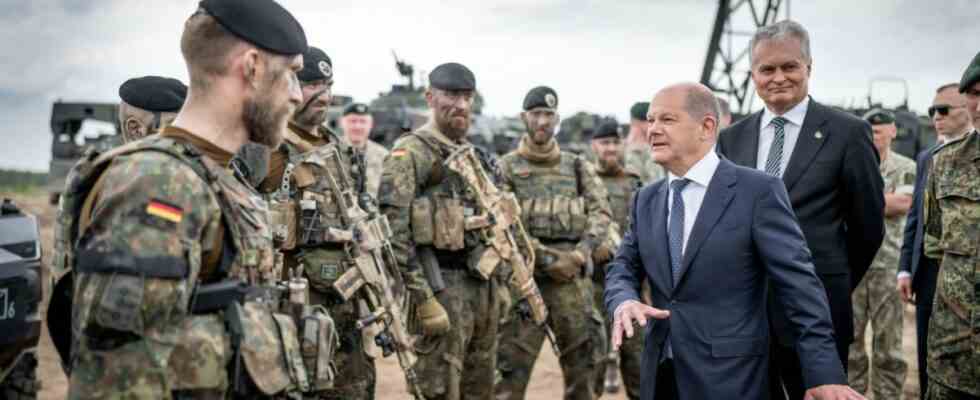The images are still unsettling: early in the morning on February 24, Russia bombed the Ukrainian capital of Kyiv. Hours later, the 30 NATO members in Brussels decide to move thousands of soldiers to Eastern and Southeastern Europe. The alert level is increased, the protection of the member states from Russia is suddenly concrete. As bad as the suffering of the people in Ukraine is, the Russian invasion is giving the defense alliance a boost. This is the thesis of the ZDF documentation NATO comeback?, which is convincing and documented by many interviews. Suddenly, the supposedly “brain-dead” alliance has a “purpose and new cohesion,” and the chaotic withdrawal from Afghanistan is forgotten.
Just in time for Summit in Madrid viewers learn how NATO ticks. For months, Gunnar Krüger and Florian Neuhann accompanied Secretary General Jens Stoltenberg, who has to ensure that no member vetoes the rest. They show, as NATO has always emphasized, that it is only its members who supply weapons – the organization only advises. The war crimes in Bucha or Mariupol are having an effect: more and more heavy equipment is being delivered, taboos are being dropped, and the separation between members and the organization seems increasingly artificial – for example when the ministerial meeting to coordinate arms deliveries takes place at NATO headquarters.
NATO Secretary General Jens Stoltenberg on Tuesday before the start of the NATO summit in Madrid.
(Photo: Bernd von Jutrczenka/dpa)
There are reasons why the authors filmed a lot in Lithuania. The Bundeswehr has been stationed here with a battalion since 2017 to deter Russia. German commitment will increase, and the Bundeswehr will plan specifically how to defend the Baltic Republic in an emergency. This is another reason why it is important to know the history of Eastern Europe. Foreign Minister Gabrielius Landsbergis gives an impressive account of how he hid as a child on “Bloody Sunday in Vilnius”. In 1991, Mikhail Gorbachev sent tanks to stop the independence movement – 14 people died. Today Landsbergis says: “I heard the heavy engines and the rolling of the tanks. The sound stays with you: metal on asphalt. You recognize it again and again.”
ZDF was the first TV team allowed to shoot in the NATO archive. Conclusively, it is shown that there was no legally binding promise to Moscow that Warsaw Pact states should not be part of NATO. According to historian Mary Sarotte, statements by Foreign Minister Hans-Dietrich Genscher never became government policy. “When Helmut Kohl and George Bush found out about it, they got very angry.” The Federal Chancellor at the time, together with the US President, pushed through the free choice of alliance. The example of Lithuania shows how biased the term “NATO eastward expansion” is: It was a democratically elected government that saw the best protection against Russia in joining the alliance in 2004.
NATO comeback? ZDF, Thursday night, 0.45 a.m. and before that in the ZDF media library

